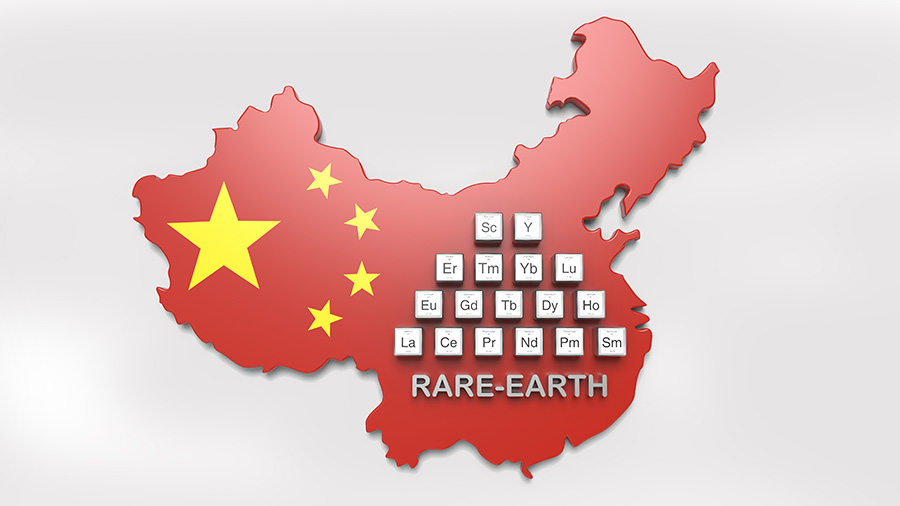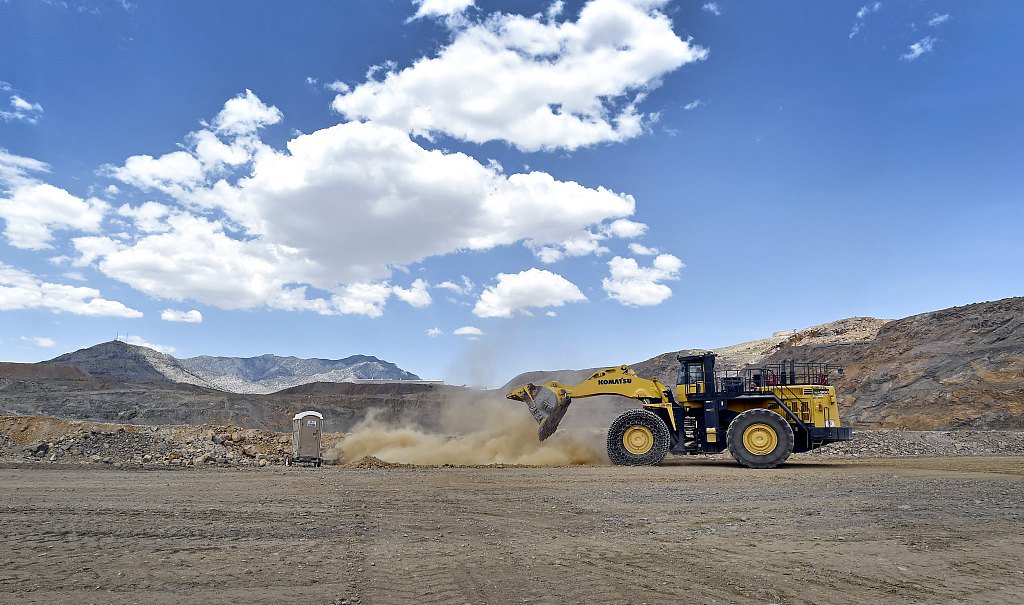China Puts U.S.-Pakistan $6 Trillion Rare Earth Deal Under Fire; Dirt-Cheap REEs, Baloch Rebels Derail The Pact

In September, Pakistan and the US signed a historic rare-earth deal. Under the agreement, the US Strategic Metals (USSM), a Missouri-based firm specializing in the recycling and processing of critical minerals, will invest nearly US$500 million in Pakistan to explore, develop, and refine Rare Earth and critical minerals.
The deal targets Pakistan’s estimated US$6 trillion in untapped reserves, primarily in the restive province of Balochistan.
Following the agreement, the USSM received the first consignment of Rare Earths shipped from Pakistan earlier this month.
The deal, while creating euphoria in Pakistan, also cemented the image of Field Marshal General Asim Munir as the country’s uncrowned ruler.
In the aftermath of the agreement, many Pakistani commentators celebrated the deal with the US, selling it as the remedy for all of Pakistan’s economic woes.
The country has a debt-to-GDP ratio of over 75%, far exceeding the emerging-market average of 60-65%, a historic high unemployment rate, and foreign reserves of less than US$20 billion.
Over the next five years, according to projections based on State Bank of Pakistan and World Bank data, Pakistan is expected to save nearly US$110 billion in external debt servicing costs.
On top of that, the country’s security situation is worsening day by day. According to South Asia Terrorism Portal (SATP), the year 2025 is on course to become Pakistan’s deadliest year since 2008.
This year, Pakistan has already lost 991 security personnel in terrorism related incidents till October 30, the deadliest year since 2008, when Pakistan lost a record 1,012 security personnel.
Furthermore, Pakistan fought a brief four-day war with India in May this year, and is currently engaged in hostilities with the Taliban-controlled Afghanistan.
Amid this all-around gloomy atmosphere, the Rare-Earth agreement with the US was sold as the remedy for all of Pakistan’s ills.
However, this over-enthusiastic reading of the agreement and its impact on Pakistan’s ailing economy might be a sign of desperation, rather than any objective analysis. The US$6 trillion figure is a notional number, and there are far too many probabilities at work here.
Just Having Rare Earth Reserves Is Not Enough
Having rare earth reserves is only part of the equation; their mining must be economically viable to generate value.
Profitability depends on several factors, such as the grade and quality of deposits.
High-grade deposits (higher concentrations of rare earth elements) reduce extraction costs. Low-grade deposits require more processing, driving up costs.
Pakistan’s reserves are still under geological survey, and there is no credible data on the grade of its deposits. If the Rare Earth concentrations in the deposits are not high enough, the entire mining process becomes economically unviable.
For instance, India holds approximately 6.9 million metric tons of rare earth element (REE) reserves, accounting for about 5.3% of the world’s estimated total of 130 million metric tons (based on 2024–2025 data from the USGS).
This will put India in third place globally, behind China (44 million MT) and Brazil (21 million MT). However, as noted earlier, having REE reserves does not mean that mining them will be economically viable at a given location.
Competing With China In Rare Earths Is Not Feasible
Furthermore, China is the elephant in the room. China keeps Rare Earth prices low in the international market by mining and processing them at a scale that is difficult to replicate, certainly not in a country like Pakistan, which faces numerous security and economic challenges.
China has been in the game of mining and processing of Rare Earths for at least four decades now. China was an early entrant in the field and started investing heavily in the advanced technologies necessary for mining and processing Rare Earths.
China currently controls nearly 70% of Rare Earth mining, almost 90% of its global processing, and 98% of global Rare Earth magnet production.

According to the Centre for Strategic and International Studies (CSIS), “A key obstacle to minerals security is China’s deliberate manipulation of global markets—flooding them with excess supply to push prices so low that mines in other countries become unviable.”
“This approach has made it difficult for the other countries to compete with China under current market conditions.”
It is difficult to fathom how Pakistan can compete with China in Rare Earth mining and processing in an economically viable way.
Security Situation In Pakistan
Another issue is that almost all of Pakistan’s Rare Earth reserves are in provinces where Pakistan is battling a full-fledged separatist movement.
Pakistan’s Rare Earth reserves are mainly in Balochistan and Khyber-Pakhtunkhwa provinces. Both these provinces have active militancy to put it mildly. Indeed, certain parts in both these provinces are outside the purview of the Pakistani state machinery.
Baloch people already nurse a deep sense of resentment against the Pakistani state, which they view as an outside oppressive entity.
Balochistan is Pakistan’s most resource-rich but also most impoverished and backward province. The locals fear that there are secret agreements between the US and the Pakistani Army, and they will not benefit from the resource extraction from their land.
It is noteworthy that despite investing nearly US$50 billion in the province, China has not been able to stabilize the province. It is difficult to imagine how the US will succeed where China has failed.
In fact, Pakistan’s strategy is fraught with risks that can deteriorate the already critical security situation in the region.
US’s Multiple Rare Earth Agreements
Also, Pakistan is by no means the only country with which the US has signed a Rare Earths agreement.
In fact, in 2025 alone, the US has signed about half a dozen such agreements with various countries.
In October, the US and Australia signed a Rare Earths agreement, which entails the two countries investing nearly US$2 billion in REE mining and processing projects, unlocking almost US$53 billion in deposits.
Notably, the Rare Earths mining ecosystem is far more developed in Australia than in Pakistan.
In 2024, Australia was the world’s top destination for rare earth exploration, securing US$64 million, or about 45 percent of worldwide investment—five times more than Brazil, the next-largest recipient.
Australia hosts 89 active rare earth exploration projects, far outpacing Canada (18), Brazil (13), and the United States (12).
As the world’s fourth-largest rare earth producer, Australia is also investing heavily in building its processing capacity, including a US$1.25 billion government loan to Iluka Resources for its rare earth refinery, tied to offtake agreements with allied nations.
According to CSIS, “Australia holds three decisive advantages—world-class geological reserves, strong capital markets, and deep human capital. The country is a ‘periodic table that lights up like a Christmas tree,’ boasting one of the broadest and richest concentrations of mineral resources on Earth.”
“It is home to over 40 minerals identified as critical by the U.S. Geological Survey.”
On his ongoing tour of Asian countries, Trump also signed agreements on Rare Earths with Malaysia, Cambodia, and Japan.

The deals may “benefit immensely from being linked together in a plurilateral agreement with strong commitments, financing and pooling of resources,” said Wendy Cutler, senior vice president at Asia Society Policy Institute.
Deals with these countries will increase US access to rare-earth deposits and their mining and processing.
Also, US agreements with countries like Japan, Malaysia, and Australia could be much more valuable to Washington, given their advanced technology, skilled labor, and access to capital.
Furthermore, these countries are much more politically stable and more integrated into the global trade system than Pakistan.
Earlier in April, the US signed a similar agreement with Ukraine, which is believed to hold reserves of nearly 5–6 million metric tons of rare earth elements (REEs), accounting for approximately 3.8–4.6% of the global total.
In the coming months, Trump will seek to sign similar agreements with other countries to reduce the US’s critical dependence on China for the supply of rare-earth magnets.
Clearly, Pakistan is not the only alternative available to the US for supplying rare earth elements.
The development of rare-earth mining and processing facilities can take years, sometimes decades, to complete. Given Pakistan’s precarious political, economic, and security situation, it is unlikely to develop such an ecosystem cost-effectively.
The US$6 trillion figure, cited in Pakistani media commentaries, is more like a mirage that can offer temporary relief to Islamabad but is unlikely to materialize.
- Questions and Answers
- Opinion
- Motivational and Inspiring Story
- Technology
- Live and Let live
- Focus
- Geopolitics
- Military-Arms/Equipment
- Güvenlik
- Economy
- Beasts of Nations
- Machine Tools-The “Mother Industry”
- Art
- Causes
- Crafts
- Dance
- Drinks
- Film/Movie
- Fitness
- Food
- Oyunlar
- Gardening
- Health
- Home
- Literature
- Music
- Networking
- Other
- Party
- Religion
- Shopping
- Sports
- Theater
- Health and Wellness
- News
- Culture

